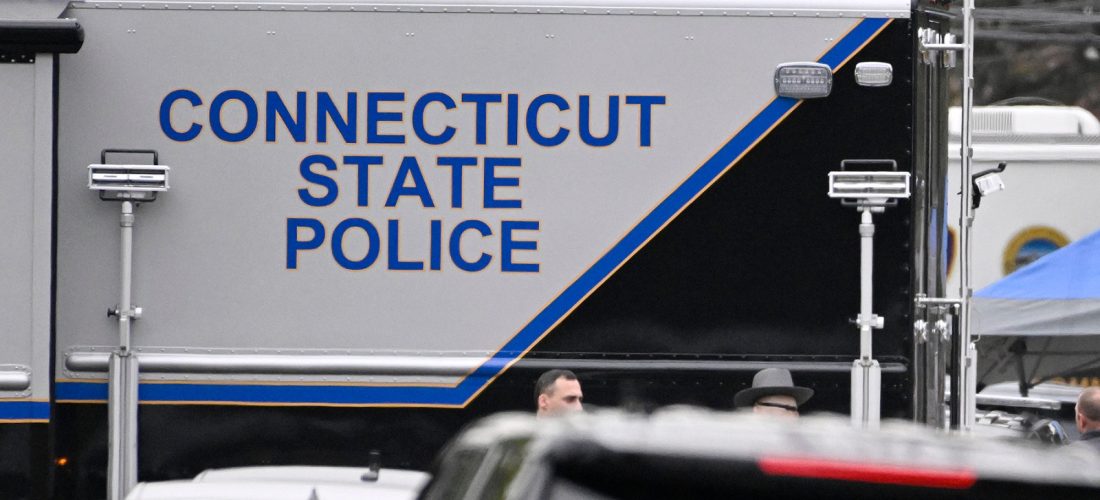Fake-Ticket Champ in Connecticut Trooper Scandal, Revealed
In a damning audit of state police — which exposed 26,000 likely-fraudulent tickets that were logged into Connecticut’s racial profiling database — one state trooper stood out as a dubious high performer.
The audit flagged a lone state policeman who submitted 1,350 “overreported” tickets from 2014 to 2017. (These are the tickets auditors deemed, with “high likelihood,” were “false.”) This one trooper accounted for more than 5 percent of the state’s total over the seven years covered by the audit. And according to the report, these dodgy citations accounted for “over 83 percent of this trooper’s infraction records.”
Until now, authorities would not identify this state policeman. But in response to a freedom of information request by Rolling Stone, the state has disclosed the individual is Robert S. Hart, who retired as a Trooper First Class in 2017.
Hart was assigned to Troop F of the Connecticut state police, headquartered in Westport, which had “twice as many overreported records compared to the average troop,” according to the auditors, who added of the unit: “We believe there is a pattern of submitting false and inaccurate racial profiling records.”
Hart retired in good standing. Cynthia Isales, legal director for the Connecticut Department of Emergency Services and Public Protection, who sent the state’s FOI response, wrote that Hart has “no disciplinary history” related to improperly logged tickets.
State payroll records reflect that Hart had been earning close to $140,000 a year at his retirement, including overtime. He now appears to be drawing a hefty pension. Connecticut’s Open Pension database shows Robert S. Hart’s benefit in 2022 was $104,000. Efforts to reach Hart by phone and email were unsuccessful.
While Hart is an outlier, he’s far from alone. The Connecticut state trooper scandal implicates as many as one-in-four state police. By law, troopers are supposed to log traffic stops in two databases: one that goes to the judiciary and triggers fines and court dates; the other records the race of motorists stopped — as part of a state initiative to eliminate racial disparities in policing.
The audit, conducted by the state-funded Connecticut Racial Profiling Prohibition Project, describes pervasive logging of tickets in the racial-profiling database that do correspond to actual traffic citations filed with the judiciary. In aggregate, this fake ticketing had the effect of systematically inflating stops attributed to white motorists.
The audit also discovered that troopers failed to log more than 16,000 genuine traffic tickets in the racial database, which it describes as a violation of law. This under-reporting masked the true number of stops of people of color. The twin practices created a “a substantive and statistically significant” distortion of the state’s traffic enforcement by race, the audit concluded.
The motivations for individual officers in this scandal can be difficult to tease out from the data. A 2022 Hearst Connecticut expose of fraudulent ticketing by four officers, which sparked the current audit, revealed that the troopers had been logging ‘ghost’ stops into the racial database to pad their performance metrics — resulting in perks like “preference for shift assignments, new or special police vehicles, promotions, and overtime assignments,” the audit reports. (Two troopers received short suspensions; two others retired before being subject to any discipline.)
The release Hart’s identity comes at a moment with the Connecticut state trooper scandal is widening. Last week a report surfaced that a single trooper had logged more than 90 percent of his tickets since late 2022 — or more than 1,000 citations — as being issued to Native American drivers, and none to Hispanics. The trooper responsible for these unfathomable statistics has been suspended.
Legislative committees are meeting on Wednesday, July 26, in Hartford to hold a special hearing on the state trooper scandal. And on Monday, Gov. Ned Lamont announced that he’d commissioned an independent investigation, led by former U.S. Attorney Deirdre Daly, to probe the fake ticketing. “We must get to the bottom of this and learn how it happened, why it happened, and how to prevent it from ever happening again,” Lamont said.
This is a sharp change of tactics by the governor, who previously handed off investigative responsibilities to the Office of the Chief State’s Attorney — which then announced it was working hand-in-glove with the Connecticut State Police itself on an investigation. The move was roundly criticized as lacking independence.
Less than two weeks ago, Lamont’s office insisted that the State’s Attorney was the “appropriate entity to investigate this,” that the governor had “faith in the independence of the Connecticut State’s Attorney Office,” and that it was “important” that that office “be allowed to conduct their investigation.”
A spokesperson now tells Rolling Stone that the office of the state’s attorney probe will continue and will ultimately weigh criminal charges. The new independent inquiry is a fact-finding affair and offers a path for public accountability.
